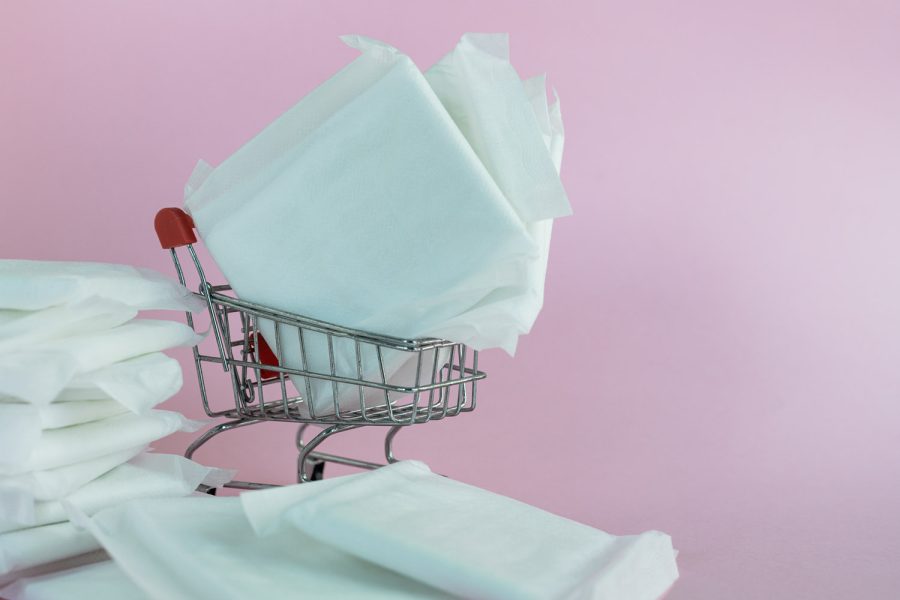Opinion | Eliminate the period tax in Iowa
The Iowa House and Governor should vote to approve a bill alleviating the tax on essential health care products for menstruating people.
April 17, 2022
The Iowa Senate voted to approve a bill that lifts the tax on period and diaper products, leaving it up to the House and Gov. Kim Reynolds to approve this legislation. Across the country, people have been protesting the luxury tax placed on period products, and organizations like the Pad Project and Power Pump Girls work to address period poverty in the U.S.
It’s time this bill is passed, moving us toward more accessible menstrual care.
Period products are a basic necessity for people who menstruate, but they still come with the normal Iowa sales tax of 6 percent, or 7 percent in some cities. Things like toilet paper and over-the-counter drugs are treated as essential and thus have no additional sales tax placed on them, and period products should be treated the same way.
Restricted access to period products leads to period poverty.
According to the Iowa Youth Congress, two-thirds of low-income women are unable to afford menstrual products at least once a year. With half of the population menstruating, more needs to be done to ensure there is access to period products.
The pandemic has exacerbated period poverty, making passing legislation that alleviates the tax on period products even more necessary.
A national survey of 1,000 menstruating teens showed four out of five have either missed class or know of someone who has because they couldn’t access period products. Further, one in five menstruating teens reported struggling to afford period products in general.
Many people, such as those who experience homelessness, rely on public restrooms for period products, which have often been unavailable through the pandemic. The combination of lack of access and financial struggle has worsened people’s ability to care for themselves during their period.
A study done at the beginning of the pandemic showed income loss during this time contributed to increases in barriers to menstrual care. People who experienced income loss were 3.64 times more likely to not be able to afford period products than people who did not.
It’s time Iowa takes the necessary steps to alleviate at least some of the financial stress of buying period products. On average, people who menstruate have 450 periods in their life. The Iowa Youth Congress found, with this in mind, the tax on period products could amount to $220 in a lifetime. The National Organization for Women found the average menstruating woman spends around $20 per cycle and $18,000 in a lifetime on period products.
People do not make the choice to have a period and should not have to pay the cost equivalent to college tuition in their lifetime to take care of themselves through this natural process. The $220 may seem insignificant in comparison to how much people who menstruate could spend on health care items — however, there is no reason to tax period products as non-essential items because it makes them even more inaccessible.
No one should have to make a choice between food and buying pads or tampons to take care of their period. Reynolds and the Iowa House should do the right thing for menstruating Iowans and alleviate the tax placed on period products.
Columns reflect the opinions of the authors and are not necessarily those of the Editorial Board, The Daily Iowan, or other organizations in which the author may be involved.



